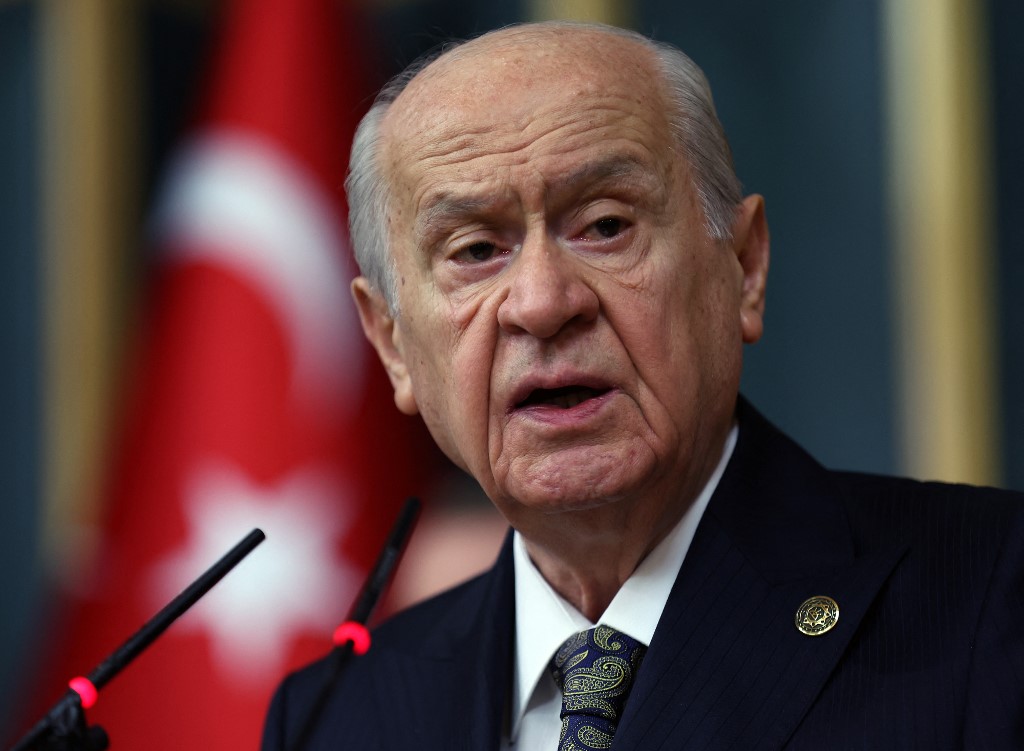The leader of Turkey’s far-right Nationalist Movement Party (MHP), Devlet Bahçeli, has unexpectedly expressed no anger over a visit his election ally, the ruling Justice and Development Party (AKP), paid to a pro-Kurdish party concerning a constitutional amendment guaranteeing a woman’s right to wear the Islamic headscarf, local media reported on Tuesday.
Three representatives from the AKP, including Justice Minister Bekir Bozdağ, met with officials from the pro-Kurdish Peoples’ Democratic Party (HDP) on Nov. 2 to talk about a proposal from President Recep Tayyip Erdoğan to hold a referendum to guarantee a woman’s right to wear a headscarf in public venues, an idea the president has recently backed away from.
The visit raised eyebrows since Erdoğan and the AKP, in addition to Bahçeli’s MHP, accuse the HDP of links to the outlawed Kurdistan Workers’ Party (PKK) and also accuse other opposition parties of collaboration with it from time to time.
The PKK, recognized as a terrorist organization by Turkey and much of the international community, has been waging a bloody campaign in Turkey’s Southeast since 1984.
Following the visit, both the opposition and several figures from the AKP accused the ruling party of being hypocritical in its attitude towards the HDP and called on the party to decide whether they think of the HDP, the second-largest opposition party in parliament, as the political front of the PKK or a legal, official party with a group in parliament.
Contrary to the expectation that Bahçeli would also criticize its election partner for visiting a party that they both accuse of links to a terrorist organization, Bahçeli on Tuesday said that it was a “very natural and correct step” for the AKP delegation to visit all the political parties that have a group in parliament in order to discuss the constitutional amendment for headscarf freedom in Turkey.
The political and legal assault on the HDP, which intensified after a truce between Kurdish militants and the AKP government broke down in 2015, grew even stronger after Erdoğan survived a coup attempt in July 2016 that was followed by a sweeping political crackdown.
The party currently faces a closure case on charges of “attempting to destroy the indivisibility between the state and the people,” and hundreds of its politicians, including former co-chairs, are behind bars on terrorism charges, while most of the 65 HDP mayors elected in the predominantly Kurdish Southeast in 2019 have been replaced by government-appointed trustees.
The HDP denies links to the PKK and says it is working to achieve a peaceful solution to Turkey’s Kurdish issue and is only coming under attack because of its strong opposition to president Erdoğan’s 19-year rule.



